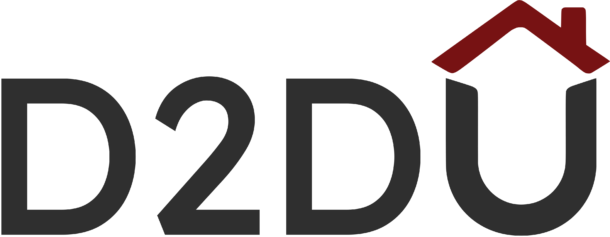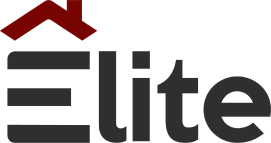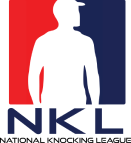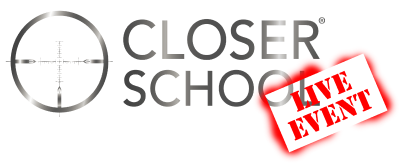Ad 00:06
This episode is brought to you by D2DCon4, the #1 business conference in the door-to-door and direct sales industry with an unmatched speaker lineup, exclusive workshops, handpicked vendors award, high-level networking and more. Come and learn from the one percenters in the business and leadership industry. David Goggins, John Maxwell, Tim Storey, Hal Elrod, Bradley, and Sam Taggart. Go to D2D.com to reserve your seat today. Limited Tickets are available. Don’t miss out, go to D2dcon.com and get your tickets before they sell out.
Sam Taggart 00:59
Everybody. This is Sam Taggart with the D2D podcast and I’m here with one of our cons. Very big mainstage speakers, Brad Lee. And a lot of you guys have heard his content closer scroll, you’ve seen his stuff on Instagram, YouTube. He’s personally worked a lot with some of the greatest sales trainers out there and now is one of the most popular out there as far as content so guys, January 8, and ninth in Salt Lake City, Utah. Do not miss this. This is a event of a lifetime with David Goggins, John Maxwell Tim Storey, Hal Elrod, and yours truly right here on podcast today, we’ve got Bradley. So thanks for getting on the show, man. And thanks for participating the event. This is gonna be exciting, dude. Thanks for having me, man.
Brad Lea 01:45
That event sounds like it’s gonna be a unbelievable time.
Sam Taggart 01:49
Yeah, so we’ve got 18 other workshops, speakers that we’ll be announcing shortly. So a lot, a lot of really cool like VIP dinners and award ceremonies with golden door awards. And then we have industry awards are actually inducting people to the Hall of Fame this year in the door space and, and doing some really cool like things with the doorknob Association this year. So I’m excited to kind of like, welcome you into our world. I know you’ve worked a lot with training platforms with some of these solar companies and roofing companies. And you’ve done a lot of and have mad respect for the door space. So it’d be fun to have you out to our to our event. Dude,
Brad Lea 02:25
I appreciate it. But keep in mind, I’ve been doing door to door since I was six years old. Geez. I love it. Say no to me. I’m not an outsider coming in. I’m an insider coming out. I love it. I
Sam Taggart 02:38
love it. So it’s funny. I actually when we had Ed my lead on the podcast last year and come to door door con. He said something very similar. He’s like, I don’t think a lot of people realize I knock doors like 10 years straight. He’s like, I’m still kind of knocking doors. And I was like, respect. You know, I think that there’s a mutual, obviously, like recognition and respect that anybody that’s done sales or door to doors, they know the grind, like one door can sniff out another good door door guy fast and they can sniff out the phone. He’s fast too. You know what I mean? So for those that don’t know, Brad, he is the owner of vt lightspeed, which is a training platform that we use for door to door you and a lot of our clients, we’ve got 10s of 1000s of users on this platform. And I’ve worked with Brad for quite a while now. And anyway, so you know, you got into the training platform. But what like, what did you do before that you software was never your first your main thing like what give us kind of your quick background?
Brad Lea 03:36
Well, again, six years old, maybe seven, I started knocking on doors, selling candy bars, ended up developing a pitch and became the number one first grade candy bar salesperson in the history of the school, probably this country. And the pitch was pretty funny. After a little about 20 minutes of knocking on doors, I realized, man, I gotta get a pitch. So I’d knock on the door and I put the candy bars behind my back and I’d say, Hey, man, do you have the phone number do a good roof repairman. They’d say what I’d say cuz when you taste one of these, you’re going to go through the roof. They started buying box after box after box. So that’s when I got my first taste. But then I kind of, you know, grew up and everyone told me to get a real job. So I ended up getting a job with the Forest Service. thought I was going to be fighting forest fires. I ended up carrying a pice bag on my back, which is basically a big old backpack filled with water and then I look for smoldering stumps and squirt squirt on them. And I realized quick that I wasn’t into manual labor. So I quit that job and went back into sales and will stay there ever since. So before lightspeed dude I was out there, kicking acid sales, and ultimately developed a lease presentation for the car business started training that realized training wasn’t very effective the way it was. happening. So found some people to develop an interactive technology to, to allow people to deliver, track and measure good content, because that’s the main reason most companies fail is they don’t really understand how to deliver actual training. Most people think training is watching a video. But that’s just exposure, you need four things to actually train somebody, you need good content, right way to do it in the first place, you need repetition, which is what most people miss, you need practice, which is what most people miss, and you need accountability.
Sam Taggart 05:34
I love that.
Brad Lea 05:35
So with those four things, I’m out there with my training, my sales training, I’m crushing it. And I just realized, at some point, look, you know, I can try to be the guy that competes with everybody, or I can go collaborate with all the other people, all the other experts. And so I just started private labeling the platform. And that’s why now I’m a CEO of a software company, because, you know, my software is used by hundreds and hundreds of companies and subject matter experts to train, you know, millions of people on whatever their subject matter expertise is.
Sam Taggart 06:09
I love that. So let’s talk about that whole training system. I really liked your course, was one of the for one more time for those that missed it. Oh, yeah. For step two, good training, what are the four? Well, it
Brad Lea 06:22
You have to have these things in order to make it training? Otherwise, it’s just exposing? Yeah, you’re just exposing people to information, even if it’s good, you’re just exposing people, it doesn’t really work. It’s not very effective. I mean, here in Vegas anyway, dude, exposure could get you arrested. So at the end of the day, you know, exposures, not what they need, what they need is good content, repetition, practice and accountability. problem with most companies is they just deliver good content once. People need to hear things over and over and over. That’s why we set our ABCs 1000 times. That’s why both of you can both of us can recite them frontwards and backwards. So at the end of the day, repetition is key. Most people miss that. And then practice, you know, most people are trying to let their people practice on real customers. And it’s like, when you can create a training system that allows them to practice on virtual customers, you know, I can, I can let someone knock on 1000 virtual doors and get all the objections in the world, before they actually knock on a door. Or I can, you know, help them while they’re knocking on doors get better at night while they’re while they’re practicing. So you got to practice and then you have to be held accountable, whether it’s you holding yourself accountable, or a company that’s paying for that training and expecting those results. You know, let me track and measure and see if this person is actually understanding so I can hold them accountable. You know, how many people don’t know how their phones are answered? Like you call a company, whoever’s on the phone, whoever answers will answer their own way. There’s no way to answer a phone. You know, there’s no particular you know, way to handle objection, not everybody’s trained on customer service loving on your customer. Because you know what Sam is what’s worse than a frickin no customer is a pissed off customer. Yeah, like either have no customer than a pissed off customer. Just off customers are not good. And if your entire staff is not trained on the most current up to date 2020 versions of love it on your customer, man, you better train them. And anybody out there with a business right now that’s listening to this, think about this, four areas of training that you want to focus on number one, sales, because sales usually solves everything, right revenue solves a lot of problems. So sales you want to focus on obviously, then customer service, as I just mentioned, then compliance one little lawsuit, one little, you know, snag in your game, and all of a sudden, some lawsuits taking you out, you know, so make sure all your i’s are dotted and your T’s are crossed, make sure everybody understands they’re not supposed to play grab ass and, you know, do all the kind of shit You see, especially in the day to day industry, because you guys are all a bunch of evens. At the end of the day, you know, you want to make sure you’re compliant. And then you want to make sure last but not least, that you have a personal and team development library. I mean, do you want to be better next month are the same, Sam better better? So how are you going to get better? How are you going to get your team better, not better have a library of content that you can that you can assign and hold accountable. It’s crazy how many people spend a ton of money training and they’re not training they’re exposing.
Sam Taggart 09:36
So here’s here’s interesting, and this is this is where I get super passionate. So anybody that’s listening, that doesn’t know we have ddu where we have over 200 companies that we’ve helped build, film, edit, upload customized white label to support them because I go to the biggest companies like literally bring security for example. We help them or you know Massive companies down to two man little roofing companies that my film guy was in Atlanta yesterday with like a teeny little roofing company, right? And we say we we literally sing the same song you’re saying right now is most these guys they know they need good content, they say I don’t have time to create good content, we go great. We got 1000 videos to pick from, what do you want us to put in your platform, we already got good content, Let’s film some of your good content, teach you how to film it, show you how to do it, we’ll edit it, we’ll do it for you. And then repetition. So many people, they’re like, go through the training. And in the first week, right? It’s like, here, I watched the videos on the door approach. I watched the videos on the the clothes or whatever, one time, and I’m like, okay, so you spend a week training and then the rest of your career for the next 10 years, you
Brad Lea 10:46
Did no more training, like, That’s pathetic. Like, you should watch those over and over and over again, after saying this to start saying this. Training isn’t something you did. It’s something you do.
Sam Taggart 10:58
Ooh, good. Line training isn’t something you did. It’s something you do. And I watched veterans like, Oh, no, I already watched the videos. And I’m like, what, like, okay, so you’re broke? So do you know, it’s like, Do you not think there’s another level a new a new ceiling that you need to break through? And I found that, you know, like, Coach Wooden, when he would get his new players, you would teach them how to tie their shoes. And he’s like, this is collegiate basketball. What do you mean? Why are you teaching me how to put my socks on and tie my shoes He’s like, it’s about the fundamental sometime, it’s about the repetition. It’s about doing the basics really, really, really well. And not being too good to train or too prideful to say that there’s not anything new that I could learn. And then one of the biggest things is this personal development. I like that you you mentioned this, because, you know, I held a two day business deep dive the last two days with our high level consulting clients. And one of the like, we spent probably three hours building a leadership development map for their teams, because I’m like, Guys, you all talk about scaling, we all talk about how to open up a new market, I want to open up more managers, I want to grow my team. And I’m like, what’s teaching your team to grow? Like, I know you want that. But you can’t just look at your guy, Tommy and be like, Tommy, you’re gonna be a manager. He’s like, Oh, cool. I got a new a new badge, I got a new title. That’s like, can you deploy D to D? university? Yeah, like, I’m like, I have a whole leadership track built for you. But I recommend you put your own flavor and sauce on it. And then there you go, like, and I think that people underestimate the power of what you just said, like, giving them the tools, giving them the roadmap of how do you develop team and you know, I always say people don’t leave companies, they leave leaders. And the biggest deficit I found in this industry is the leadership and their ability to disseminate and lead and influence and, and inspire and give value back down and communicate it down to the team. So I guess being in your shoes, you’ve helped 1000s of people in companies, I’m doing this on a much smaller scale in our industry, obviously. What are some good practices like to implement or to execute on, you know, helping with my sales, or customer service or personal development, our team and we can maybe even focus more on not so much like the other departments, because most people listening to this are sales managers, owners, sales reps, when it comes to like implementing training and development? Do you have any best practices to make sure that, you know, you get your people engaged? They’re not like, Oh, yeah, you know, I forget to log in, or I’ve never really logged in or, or, you know, to get them bought into the importance of learning instead of being too cool for school. Yeah, have you seen things that really helped work to get that Mojo going?
Brad Lea 13:49
Yeah, well, if you can’t get people to log in, Sam, that’s a management problem, not a training problem. I mean, you have, do you have control of your organization? Or does your organization have control you? The reason why you’re worried about holding people accountable is because you can’t find enough people to do the job. Because you’re not necessarily training people. you’re exposing people or your billion Jimmy to show Ted what to do in the field. Well, you don’t even know what Billy and Timmy are doing. So, today, folks, if you’re trying to build and scale your business, you’re going to need a system that onboards and educates and trains your people to the philosophies, core values, techniques, skill sets, product knowledge, etc, etc. You want to be up to speed? I mean, you think a trained employee would outperform an untrained employee every time. So the question is, is how do we train our employees that because you already know that if you train your employees to a high level, you’re going to produce more than you’re producing now. So if you want to grow, scale and expand your business, well, then you better train your people effectively, because your people are what’s going to do it and you better expect to grow because how are you going to do more with no more? Okay, so you’re gonna need a training system. If you’re going to do it manually, you’re gonna make mistakes. If you’re going to do it virtually, you’re gonna freakin automate things and leverage technology. I think in the future, there’s only going to be two kinds of companies that remain those who use technology and those who make it. So you better ask yourself, are you using it? Or are you making it because if you’re not, you’re going out of business friend. And that’s a fact. Now, if most people would just simply assign good content with repetition, to any area, they’re weak or want to improve, it will improve if they do it effectively. You want to deliver good content with repetition, practice and hold people accountable in any area that you feel pain. So like, for example, hey, I need an increase in sales good train your damn sales people how good content repetition practice and accountability and you do it, whether they like it or not. Matter of fact, you know, when training actually starts to work, when people get annoyed, okay, when I roll my eyes, and I’m like, Damn, Sam, I’ve seen this 13 times. Okay, now it’s starting to work. Yes. And when I can lip sync your shit, that’s when it’s starting to work. Okay, and guess what? Just because I watched the video doesn’t mean anything. Did you pass the test? Did you roleplay? Did you did you interact with simulations? Did you go through the virtual customer tour to see if you can even handle the simplest of objections? Have you got the marbles out of your mouth? Are you just some frickin you know, kick the door and ready to go type guy? Well, guess what? No problem. Make sure when you get home, you go through and train. Like I said, training isn’t something you do. It’s something or it’s not something you did. It’s something you do. It’s on an ongoing basis, if we find cuz I got millions of users on lightspeed platform and all areas and dude, the craziest part is the number one companies and the number one. You know, producers, ironically, are the number one users of the platform. Yeah, go to any industry. And I can identify the top people at your company just by seeing who’s logging in more often. People log in more often than the than the shit ones. What does that tell you?
Sam Taggart 17:00
I like that, because I literally have this data. I’m like, Why don’t the top reps watch this way more? What are the crappy reps doing? Are they not looking in?
Brad Lea 17:09
You got to quit saying watch brother now that you’re on frickin lightspeed. You’re right.
Sam Taggart 17:13
Why are they
Brad Lea 17:15
They go through your courses? They go through. They don’t watch them. Dude, I watch mixed martial arts doesn’t make me a black belt.
Sam Taggart 17:24
Yeah, exactly. Exactly. You tell you so here’s, here’s a question, can I? So I’ve done this so many companies that say, Oh, yeah, we’re gonna build our own or Oh, yeah, one day we’re gonna do that. Or Oh, I don’t know. Yeah. And then I go one day, one day, so you’ve been in business six years. And you’ve How long have you said one day, you’re gonna have a sweet app? That’s why Look at all this cool content. Yeah. How often? Do you hear that?
17:50
Dude, I hear it all the time. Let me just tell you some. Listen. Most people when they embark upon this journey, end up with a video online. That is not training, folks. You need more than a video you need a system. You need a training system has community and as leaderboards it has, yeah, it has q&a. It’s got certification. It’s got tracking and measurement and testing. It’s not just a video. So again, by the time you’re done, you’re gonna end up with an online video, or get a system and a system is what makes it work a system resources guide, but
Sam Taggart 18:25
it costs too much. I don’t know if I have no money. I Brad, I don’t know if I want to invest that much money. I don’t know if it’s worth it. Like Mike, I don’t know if my guys are using it. So why spend all this money like
Brad Lea 18:38
You’re already? Sam, you’re already spending it by not doing it through the loss of all the productivity you’re not doing. Okay, you’re buying it with or without getting it. The question is, do you want to start getting it, you’re already paying for it through the loss of productivity champ.
Sam Taggart 18:57
So it’s so crazy, and I didn’t guys, I’m not what I didn’t even know the direction of this pod. So if you’re listening to this, I’m not trying to say it. All I’m trying to do is say, guys, you have 10x 20x 3x like very very, very quickly by just saying let’s put a railroad down so you can put your trains on. First. Nobody wants to drive a train through the desert, but notice it pump out much better results faster. It’s going to be much seamless, like less headache, you have way bigger ROI. And like you said, it’s costing you way more than the cost of our program and the time and energy it takes to put a track down and just trying to go chase every train down. That’s like hey, I don’t know how to do the paperwork again. Oh, let me take you under my wing for another hours, and training on the stupid paperwork process, which is most boring training to do in my life a training on IT managers, leaders, sales owner or business owners literally beat themselves dry, but then they’re too cheap to go or don’t have time or don’t think that putting a training can make any difference for them. And I’m like, You’re an idiot. So anyway, I get passionate about. Okay, I’m super salesy right now, and horn and every customer of ours, thanks so much for selling. I’m like, I’m gonna say it straight up. If you’re interested, go to dd u.com will help you build out your training system. We work with Brad, they’ve got a lot of good ideas. videos, I didn’t even like them training videos, they did what you said, have a bunch of training on a website. And this is a multi billion dollar company. I built my own training. And a lot of times people were like, hey, Sam, like I heard you have this rogue website that you’ve built for your people. And my people. I had like 25. Guys, when I built that that year, and my people pound for pound average, the highest per rep average for first year reps out of 3500 sales reps, our team had the number one prep average for first year reps. And they’re pretty good. Sam, what are you doing to get these guys? Like I’m not using vivants videos, I’m using my own training system that I built on my own website, right? Like I I built an experience other companies Training Systems as I was like, it’s piss poor to watch how bad everybody has it out there. How do you how do you beat someone dry? I don’t know. That’s a good question. That’s a good question. They shouldn’t end up dry. Alright, so let’s get out.
Brad Lea 22:05
Hold on, hold. I want to make sure people listening to this. Don’t think I’m going to show up and talk about training. Although I could. I’m going to show up at the old D2DCon and drop some bombs. I’m going to make sure people walk out of there with practical information that can double their paycheck double their paycheck feel Oh, come on now. Oh, yeah, guaranteed, you do what I tell you to do at D2D con, you’ll double your paycheck, maybe even triple it.
Sam Taggart 22:30
So one thing that I like about you, Brad, is you said I’m going to make software to help people obviously with their training. But I found that most of your content, most of your business time and energy and where you speak and where you spend your time and network is with a lot of high level businesses and owners and things like that as more of kind of the sales and business coach. What advice you know, let’s let’s go to the business level. You know, speaking of doubling your, your sales and growing your business? What are some of the common pitfalls you found in some of these direct sales companies, you know, that you commonly see like, what are what are some of the big pitfalls, and then your big aha, like, do this change these things? And this would help double your company. Because you’ve obviously helped a lot of businesses.
Brad Lea 23:20
Yeah, but I mean, dude, it’s gonna go back to training, train your damn people properly. Train your people and focus on your training, and I guarantee your results will go up, your brain damage will go down. And you will thank me later. But most people think all of the money they pour into training, they can’t really feel it’s not really tangible. They can’t really feel the effect. Well, that’s because they’re not training their people, they’re exposing their people. It’d be like going to the doctor to get a shot of penicillin. He just squirts it next to your arm. You know, that’s not that didn’t work wrote, like, the medicine works, but you got to administer it correctly. So if I’m out there, and and I’m thinking how do I, you know, increase my business to train your damn salespeople to work harder, work smarter, work longer, ask better questions, build better relationships, you know, know your product and inventory better know your core values better, you know, understand mindset, you know, like, like, develop your people, even if Well, well, you know, what if they leave, dude, what if you don’t develop them and they stay?
Sam Taggart 24:23
That’s that’s a good point.
Brad Lea 24:25
Yeah, like people say training is expensive. Try not training. That’s expensive.
Sam Taggart 24:30
I love that. So let’s say that I don’t have a skill problem. My guys are super trained. Now I have a will problem. They just don’t seem to go take like talented as hell, but they don’t work. And now we’re people. Okay, cuz that’s what I was gonna say. Cuz you probably seen that on a lot of sales industries. It’s like these guys are all sharp, but I’ve been spending time and energy they’re going through the training. These guys read all the books, they go to the conferences, but I can’t seem to get them to work. Is there any good strategies that you found to help motivate direct sales 1099 You know, commission only type of salespeople other than just like give them more training. What do you do to kind of motivate them in any good practices, they’re
Brad Lea 25:07
Mainly just, you know, build a strong culture where, where there’s a lot of competition. There’s a lot of camaraderie. You know, there’s a lot of pride, you got to build a culture of, of competition, almost where we’re like, you know, people are off when they want to be off their 1099. But they don’t Why? Because they need to, they need to stay stay up the boards man, like the whole? Well, again, another thing like how often do you communicate with your team? A lot of these teams are out in the field now. Right? So how do you communicate with them? How do you motivate them? How do you lead them? How do you fire them up? How do you incentivize? You know, what’s the culture? Like, I’d look at your culture.
Sam Taggart 25:45
What do you found? Do you find that there’s any like key, like, things that companies do, or examples of companies that you’ve interacted with that have been really cool culture contributors that like, helped build a better culture or like you have a story or an example of where you’ve seen companies shift their culture for maybe kind of a? Yeah, we’re kind of moseying along and you know, it’s not performing and then all sudden, they implement something or they shifted something or they change this.
Brad Lea 26:16
Yeah, usually they change their leadership of that. Yeah. Speed of the boss speed of the troops, nine times out of 10. You know, you got a lazy ass boss, you’ll probably have a lazy ass team.
Sam Taggart 26:32
So what how do you go find good leaders in this business? Let’s talk about recruiting.
Brad Lea 26:35
I don’t find them I develop them. I’ve got a training system that produces some high powered high caliber, some guns.
Sam Taggart 26:45
I love that how many times I would be a very rich man for if I got a if I got a nickel for how many times people hit me up and they’re like, Sam, can you just find me like a good leader? I need somebody to like, manage all the door ninjas. And you know, make sure that they’re doing it. And I’m like, there’s your problem. You know what I mean? They’re, they’re thinking that they’re gonna go find some golden goose off the street. And I’m like, A’s recruit A’s. And if you’re not a problem is, is your people are working, because you’re not working, how you’re supposed to be working,
Brad Lea 27:17
trying to attract the A’s, and you’re losing them as fast as you’re attracting them, then you become an A hole.
Sam Taggart 27:24
That’s a good one. Yeah, no, I just think so many people, they, they need to look in the mirror from the leadership. And I think that they’re asking for a fictional fairy tale, when they’re like, I just need better people. And I’m like, No, you just need to you have good people, you just need to become a better leader to lead those people. And I think that’s where people that just because they’re good sales rep, they got put in a management position, and they didn’t spend time getting coached and trained and focused and going through a system to become that leader that’s going to be able to motivate and inspire and drive competition and fuel those few of those kind of fires under everybody to have the culture that they’re asking for. And, you know, it’s sometimes a hard conversation when I’m out consulting to, like, say that to somebody, but it’s like, I’m discern, I’m not doing them a disservice by like, holding back. So then some clients are like, wow, that was harsh. I was like, I’m just just being honest. Like, like, I need to help you, not your people. Because I guarantee you like when I came to your office, or when I look at your people, I’m like, dude, if I had this team, we’d be doing five times more. Like the same dude’s like you have sharp people, but I need to help you, dude. And I think that’s more so a common conversation. And you know, if you’re Is there any good like leadership development or leadership books, or podcasts or trainings that you’ve seen, or recommend that have helped some of those leaders that you’re like, man, I have a leader, he’s kind of a dud, how do I develop them to be better? I don’t want to necessarily get rid of them right now. How have you seen any good recommendations or have any?
Brad Lea 29:00
Well, Jocko Willink wrote a book called extreme leadership. That’s a good book. Ray Dalio principles is a great book. But you know, I tend to try to tell people to look inward, like go get the Four Agreements, you know, go get books that will make you a better person, you want a better team become a better person. You know, you’ll attract better people, you know, what you get you tolerate. So if you tell me you have a bad team, you know, Jocko willing taught me one day, there are no bad teams, only bad leaders and I used to, and I used to really disagree with that. Why? Because like, you know, I had a bad team before and it’s like, I didn’t understand what they meant. Like, I’m a good leader, but this these guys suck. They just suck. You know? And then when I really figured out what they meant, they were right. You’re the bad leader. Why? If you allow someone to remain on your team that’s truly incapable of carrying the ball. You’re the problem. Not person that can’t carry the ball. You’re problem for allowing that person to remain on the team. So instantly when you have a bad team, let’s say that is true. Yeah, instantly a bad leader, if you will, if you admit that because you’re allowing the team to be bad by letting the bad people remain, which costs you eight players, then you become an aihole.
Sam Taggart 30:19
Yeah, no, it’s funny. I was out in Oklahoma to put this into context with this roofing company. And he’s like, dude, I just can’t seem to get a good manager, and I just can’t seem to attract like, a players. And, and, and he’s like, I was like, Well, the problem is, I show up to your team. And most of your people look like they came out of like, Kant, like their ex convicts. He’s like, well, they are, like, What? He’s like, yeah, we call ourselves the Misfits. And I go, Well, the problem is, is by you allowing a bunch of C players on this team right here, and a bunch of them are just like charity cases, if an A player walks in the room, and you’re not prepared for that a player, he’s gonna walk right out of that room, because all CCS is he’s like, I don’t want to play the C League, I want to play an AV. And I’m like, but you’re an A player, dude. Like, I’m like, you’re a good dude. The problem is you just have too big of a heart that you’re putting on all these charity cases. But really, that’s, that’s like repelling what you’re asking for. And I was like, you need to trim some of this back, you need to clean it up, I would shrink your company a little bit. Pick your a players or B players, you can turn into a players. And let’s start getting filling it with some more sharp looking cats that aren’t sitting there like getting higher and showed up like smelling like a bomb because they didn’t like sleep in a house last night. Let me ask you a question. That’s called a lack of leadership, okay?
Brad Lea 31:45
That’s a lack of accountability. That company is lacking accountability. So if you need good content, repetition, practice and accountability, they don’t have that. Okay. Like I said, You’re pretty screwed if you don’t have that. See Sam here at lightspeed, I go by three T’s can our disciplinary policy is the three T’s. I say I train, tolerate or terminate? Which one do you choose? You want to train, tolerate or terminate, and we don’t tolerate.
Sam Taggart 32:14
If you’re listening, he just want to train
Brad Lea 32:17
Or terminate. Because I say it just like that every play here, guys, if anything goes wrong, I’m as fair as they come. I train, tolerate or terminate, and we don’t tolerate,
Sam Taggart 32:28
he drops his he drops his pointer finger. So if you’re just listening, he dropped his pointer finger, he kept his thumb and his middle finger up. And so you can imagine the visual there and
Brad Lea 32:39
Train or terminate, like, it’s not an option to get better at lightspeed. Like, folks, if you want to work at lightspeed, you do not have an option to get better. I don’t care if you got to first place ribbon and everything you’ve done since you were 12. I don’t care if you have a degree, I don’t care if you have a record, I don’t care what you look like, I don’t care what kind of cereal you eat, I don’t care who your parents were, what I care about is that you have a desire to improve. If you do not, well, then you don’t get to work here. Love that simple. Now, most people will not take that stance. And that’s the problem with most companies. And if they could correct that, they would immediately make improvement. And that does mean going backwards. Sometimes, like Dude, you might have you know, 44 people were 18 really shouldn’t be there. Well, you’d be a much stronger company, if you got rid of 18 cancers, and remained with the strong people and start to attract more strong people or they don’t get to show up. So do you got to ask yourself a question? Do I want to do it? Or do I not want to do it? If the answer is yes, I want to build my company. Yes, I want to grow. Okay, well, then you’re going to need people. And you better have a system to train them and educate them and hold them accountable and keep them practiced. You can do it manually, or you can do it virtually but you better do it and manually is way more expensive and 10 times harder, and you can’t even scale it so I would highly recommend that you do it virtually no. How do you do that? You get someone like Sam with their NIDA de University, you issue passwords and usernames and passwords to your team. You set your expectations you track and measure that they do them. And what you will see is nothing short of amazing. Two months later, everyone will be more up to speed everyone will be more motivated. Everyone will be better. Everyone will be making more money you’ll be making more sales like you’ll be like, holy crap.
Sam Taggart 34:35
It’s fine. Like
Brad Lea 34:37
I guess brain works well. Yeah, training works if you do it right.
Sam Taggart 34:41
I love that. Okay, so let’s I we’re out of time and about sales and closing and shit that makes me know. I know. I was like the last thing I want to jam on was selling so one of the people one of the things that Bradley is famous for is the closer school. He’s got a lot of good salespeople. In case you haven’t heard, he’s just full of one liners. Like I remember when Brad selling me. And it took him a while. Like, I was like, dude, I’m a sales dude. And I’m an easy sell, but I’m a hard sell and I’m loving your lines. And he was just like, it’d be done if you didn’t like all of us. Like, I’m like stealing your lines, dude, like, there’s so good. Um, for those that don’t know, Brad has a side gig where he makes more money than he does at lightspeed, which is stand up comedy, but then he weaves? No, but he weaves a lot of his good closing lines, but he’s not afraid to close. So I guess what advice would you give to the sales guy like, what’s some good tips on selling that you’re like, man I love training on this is something that helps a sales guy. Anything there?
Brad Lea 35:41
Well, I always like to focus on objections. Why? Well, because an objection is when someone stops and will not proceed. Well, they won’t proceed, it’s pretty hard to close the deal. So to me, the difference between sales and closing is pretty simple sales people, by the way, you can sell somebody something without closing the deal. Why? They never said No, it didn’t stop. They said, they said yes. And you sold them. Great, good for you. But a closers, somebody can come in when someone says no, and get them to proceed. Now, how do you do that? How do you get around that objection? Well, number one tip I give is make sure you identify and isolate the objection. So you know that it’s real, too many people are trying to close deals that have false objections. They’re not even the real reason the person sent it to you. And now you’re trying to solve that. And it’s not even the problem. And that’s why you find them to you know, after a while leaving, you’re like, well, I couldn’t close the deal. Well, that’s because you were you were trying to solve a false objection. So how do you identify and isolate the real objection? Will you solve it with a hypothetical solution? So like, give me an objection.
Sam Taggart 36:44
I’m just, I’m just gonna think about this and maybe get back to you in a couple weeks.
Brad Lea 36:48
That makes perfect sense, Sam, it’s a big decision. But let me ask you a question. If you were certain right now, would you buy the product? Yeah, obviously. Okay. Now watch. I got you to say yes. Now, that’s the first objection. Because you said no. Now you just said yes. Okay. So now, phase two is I got to figure out how to solve that problem. Now, the fact that you said I got to think about it, I wouldn’t have already went to that technique. But I wanted to demonstrate it. If you said you wanted to think about it, my question would be fantastic. What is it you want to think about? What do you want to think about? Because what I’m trying to find is the real reason you won’t move forward. So when someone says they want to think about it, nobody wants to think about it. What Yeah, think about is the price, what they want to think about is calling your competitors. What they want to think about is whether or not they can afford it. But they don’t want to just think about it. Nobody, I want to think about it. Nobody wants to do that shit. Okay, what do you want to think about Sam?
Sam Taggart 37:42
I’m just if I really need this right now and this point in business are not like,
Brad Lea 37:48
okay, now, right here. Now, right here, if I were to hear this in a, in an actual situation, I would realize that I failed to do one of the steps correctly, I did not build value. And if I didn’t build value, my question would be why? And then I’d probably go one step back and think, did I gather enough Intel that I figure out how to get your opinion of my product or service above the opinion of your money, because again, if you want to make a transaction, all you have to do is raise the value of your product or service beyond the value of their money happens every time. So how do I get you to value my product or service more than you value your money? Well, there’s a couple of ways I can give it to you the puppy dog clothes, I can give it to you let you see the benefit. And then and then, you know, okay, you don’t want it and then all of a sudden, you want to keep there’s a million techniques. But at the end of the day, if you can get their value above the value of their money, you’re gonna make a transaction. So when someone stops, and I got to think about it, don’t take that as a as a reason, because that’s not a reason. Okay, what is it you need to think about? And by the way, the smoother you do it, the better. But like, I understand, Sam, it’s a big decision, I would want to think about it too. But out of curiosity, what what in particular, you’re going to think about? Is it the price is the color? Is it the Is it the total job? And if they said I want to know if I need it? Well, that indicates that I didn’t build any value if they if they said they don’t know if they need it, folks, you didn’t build enough value. So now what do you do? You jump back and you said, you get out of that area of the
Sam Taggart 39:15
deal. And you go back and you stop pushing? This is this is where I think a lot of salespeople they just start pushing and pushing and pushing. And I’m like, Whoa, it was your fault. You messed up, you didn’t ask enough questions you didn’t discover you didn’t create the value, you got
Brad Lea 39:28
to go back and build the value. So it depends on the objection that you’re getting Sam. But the technique that I like to teach the most is the ability to identify and isolate an objection by using a hypothetical so you can determine whether or not that’s the real reason. And then once you identify the real reason, then step two comes in where you basically just use logic, it’s leverage, obvious gain, which is free product or service, intelligence and common sense. People say, Well, what does that mean? Well, what that means is use your fucking head okay? bucking means use your damn head like if the wife’s not there and they would buy if the wife were there. What is one common sense thing? Hey, let’s get the wife here. Oh, there’s a fucking novel idea. Hey, let’s get her on the phone. Hey, let’s get her on FaceTime. Hey, listen to limousine for her and get her back here. Okay, because guess what he just said, if my wife was here, I’d buy the deal. Okay, good. Where’s your wife? That’s common sense, man. Like most people get stuck on stupid and they don’t know what to say. And they don’t know what to say. Because they’re not trained properly. They’re nervous. They’re scared. They’re like a skittish dog. Like at the end of the day, man, you knock on that door. I bet you 90% of the people knocking on doors tomorrow are wondering, you know, are these people gonna be angry? You don’t anticipate negativity, you dipshit kick the door in like you got a nine insurance a day, I got a product or service that you actually need. And believe it because if you don’t believe it, you probably shouldn’t be sell it.
Sam Taggart 40:59
Amen. Amen. Guys, pause, rewind the last few minutes of this, rewatch that because repeat one of these things 70 times, please. And aim. Yes. Like, I I can’t preach that enough. Like, it is so sad. One of the biggest sad moments of my life is when I go shadow or read. And this could be a rep that’s been knocking for 10 years, this could be a salesperson that’s like, I’m like, Oh my gosh, you’ve never been trained. Have you like no formal training whatsoever. You’ve been doing this for how long? You’ve been skirting by making your 1600 grand a year cool. Like, what happens? Like you knock a door or you talk to somebody give you an objection in its tail between the legs? And it’s like, I mean, well, you know, like, What do you mean, you’re not interested? It’s like, Oh, you said that the last 10 years like the objection handling, the like the persistence, the I you know, the confidence. It’s sad to watch sometimes when they think because they’ve been doing this so long, or because they’ve been, you know, trained because they watch a few videos. I’m like, man, there’s so much more if you can overcome objections, like a rock star, and it’s funny, everybody asked, like, Sam, how’d you get into roofing and pest control and satellite and all these other industries that you never really not because I consult all sorts of industries. Now, windows, I was with a window guy yesterday. And I found I’m like, I just know how to overcome objections better than anyone else. Like, in my opinion, I might be. Yeah, or, I mean, I’m the second best objection handler in the planet next to Bradley. And I’m like, I the objections are all the same. I need to talk to my spouse, like, I don’t care if you’re doing roof solar insurance, whatever, like you’re gonna get that. I need to think about it. You’re gonna get that like, I just know how to overcome that isolate the objection I love this.
Brad Lea 42:56
I so here’s, here’s, here’s what I would say if I’m in the roofing business, and somebody said they wanted to sleep on it. I’d say, dude, trust your beds more comfortable. Let’s get this done.
Sam Taggart 43:08
Oh, that’s so good. Sleep on. You’re like you don’t want to sleep up there.
43:16
There’s a lot of pigeon crap up there. Like let’s just let’s just get your roof done so you can sleep comfortably in your bed.
Sam Taggart 43:22
Love that. Love that. Okay, so we got to wrap up, Brad. I’m so excited. You’re coming in January. If you guys do don’t follow Bradley, the real Brad real Bradley or the real Bradley on Instagram. And go check out his closer score. He’s got a lot of good sales training and you guys could check that out where can they find access to that? You know, closer school comm closer school.com no big deal. And anyway,























